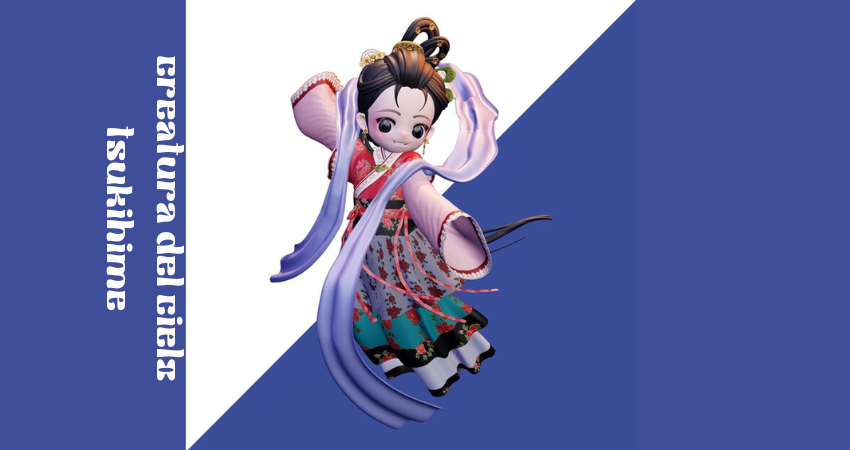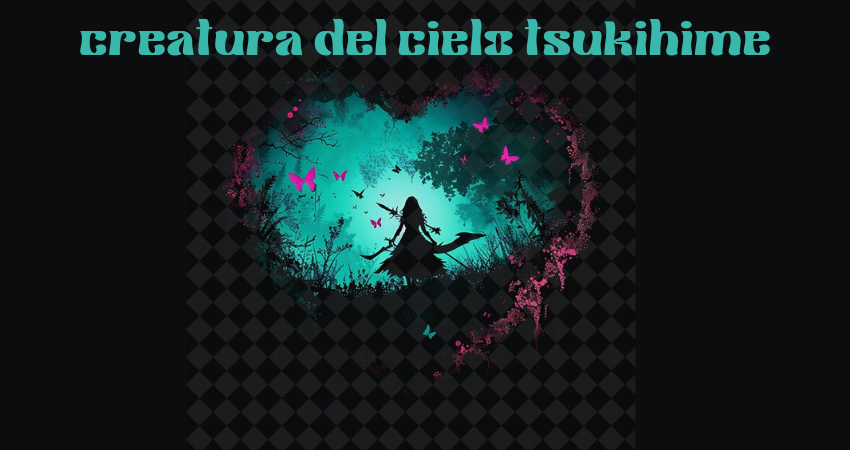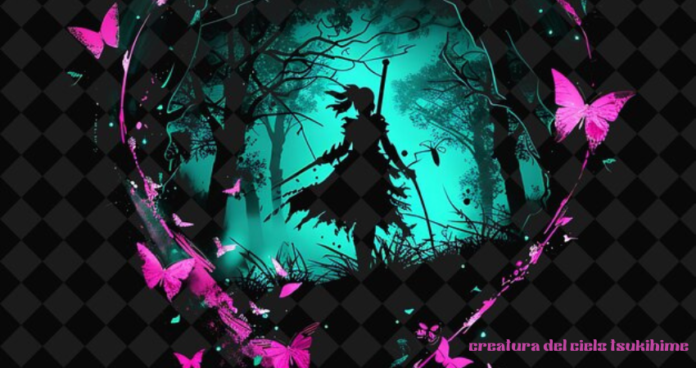In the stillness of the night, when the silver moon casts its pale glow upon the earth, a tale emerges—one woven from the delicate threads of fate, sorrow, and ethereal beauty. This is the world of Tsukihime, where shadows speak, and the very essence of life teeters on the edge of light and dark. At its heart lies the creatura del cielo tsukihime—the creatures of the sky—whose existence defies the mortal realm, whose love and loss stir the deepest of emotions, and whose very presence mirrors the haunting beauty of the moon itself.
The Moon as a Silent Witness
The moon, the eternal sentinel of the night, watches over the unfolding drama in Tsukihime. Like a distant lover, it reflects the feelings of those beneath its gaze—cold, yet filled with an ancient sorrow. Its soft light touches every corner of the story, illuminating the hidden desires, the unspoken words, and the forbidden love that blooms in the darkest of hours.
To look at the moon in this world is to peer into the souls of its characters—each one caught in their own dance with fate. It is both a witness and a participant, a silent companion to the lonely journey of those who seek meaning under its gaze.
The Creatures of the Sky: Ethereal Beings
In Tsukihime, the creatures of the sky are more than myth. They embody the celestial, the untouchable, and the profound mysteries of existence. These beings, both beautiful and terrifying, are drawn to the world of mortals yet remain forever distant. Their eyes, like twin stars, hold the weight of eternity, and their wings, though unseen, brush against the world with a quiet grace.
These creatures live between worlds, caught in a liminal space where neither time nor pain can truly reach them, yet they are not free. Their yearning is palpable, for love, for redemption, for something they can never quite grasp. They are the embodiment of the moon’s pale light—a light that is beautiful, yet so far away, never to be touched.

The Love That Defies Death
At the heart of creatura del cielo tsukihime is a love that transcends the boundaries of life and death. It is a love whispered in the dark, felt in the fleeting moments between dusk and dawn. This love is fragile, like the petals of a white rose caught in a gentle breeze—elegant, yet doomed to wither.
There is a sweetness in this love, a melancholy that lingers long after the story fades. It speaks of the impossibility of holding onto something so beautiful, so pure, when the world is filled with shadows that seek to tear it apart. And yet, despite the inevitable tragedy, it is a love that refuses to die, one that lingers, like a soft melody in the heart.
The Shadows That Consume
In this world, shadows are more than mere absence of light—they are living things, hungry and restless. They creep at the edges of the moonlit nights, devouring hope, love, and life. These shadows, like forgotten regrets, grow deeper with each passing moment, consuming those who dare to venture too close.
Yet, there is a strange beauty in these shadows—a beauty that lies in their ability to reveal the true nature of the characters. For in the darkest moments, the essence of one’s soul is laid bare, stripped of pretense, and revealed in all its vulnerability. The shadows, though terrifying, are a necessary part of the journey, for without darkness, the light cannot shine.
Fate’s Unforgiving Hand
Fate is the cruel architect of Tsukihime, binding its characters to a path they cannot escape. It is a relentless force, unyielding and indifferent to the desires of those it controls. Yet, within the cold grasp of fate, there is also a strange kind of mercy—for it offers clarity.
To accept fate is to understand that some things are beyond one’s control, and in this acceptance, there is a quiet kind of peace. The characters in Tsukihime are bound by threads of destiny, pulled ever closer to their inevitable end, yet they do not fight it. Instead, they move forward, step by step, like dancers in the moonlight, knowing that their time is short, but cherishing each moment all the more because of it.
The Fragility of Mortality
Mortality, like the moon itself, is a constant theme in Tsukihime. The fragility of life, the brief moments of beauty and sorrow, and the inevitability of death—all these echo through the story like a soft, mournful song. To live is to know that everything will one day fade, and yet, there is a kind of magic in this fleeting existence.
In the brief moments of connection, of love and loss, the characters of creatura del cielo tsukihime find meaning. They are like stars, burning brightly for a short time before they vanish into the night, leaving only memories behind. But in those moments, they are glorious, and their stories resonate with anyone who has ever felt the weight of time pressing down upon them.

A Conclusion Written in the Stars
Tsukihime is more than a story—it is a dream, a whispered secret carried on the wind, a reflection of the moon’s pale light upon the water. It is a tale of love, loss, and the delicate balance between life and death, light and dark. The creatura del cielo are not mere characters—they are embodiments of the eternal struggle between these forces, caught forever in a dance that is as beautiful as it is tragic.
And yet, in this tragic beauty, there is hope. For even in the darkest of nights, the moon still shines, casting its gentle light upon the world, a reminder that even in the face of despair, there is always something worth holding onto.
FAQs
What is the central theme of Tsukihime?
Tsukihime explores themes of love, fate, and the balance between life and death, with a focus on the beauty and tragedy of fleeting moments.
Who are the creatura del cielo in Tsukihime?
The creatura del cielo are ethereal beings that embody the celestial and untouchable aspects of the story, reflecting the mystical nature of the moon and fate.
How does the moon influence the story of Tsukihime?
The moon serves as a silent witness and a symbol of the characters’ inner struggles, casting its pale light on the delicate balance between darkness and light.
What role does fate play in Tsukihime?
Fate is a central force in Tsukihime, guiding the characters toward their inevitable destinies, while also offering them moments of clarity and acceptance.
Why is the love in Tsukihime described as tragic?
The love in Tsukihime is fragile and fleeting, constantly threatened by the shadows of fate and mortality, making it both beautiful and heartbreaking.


